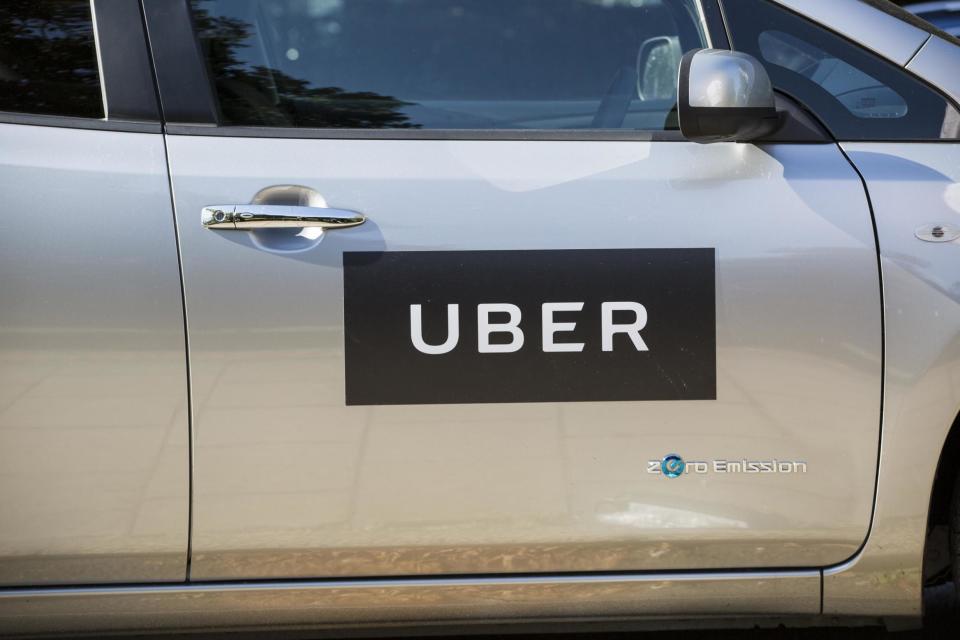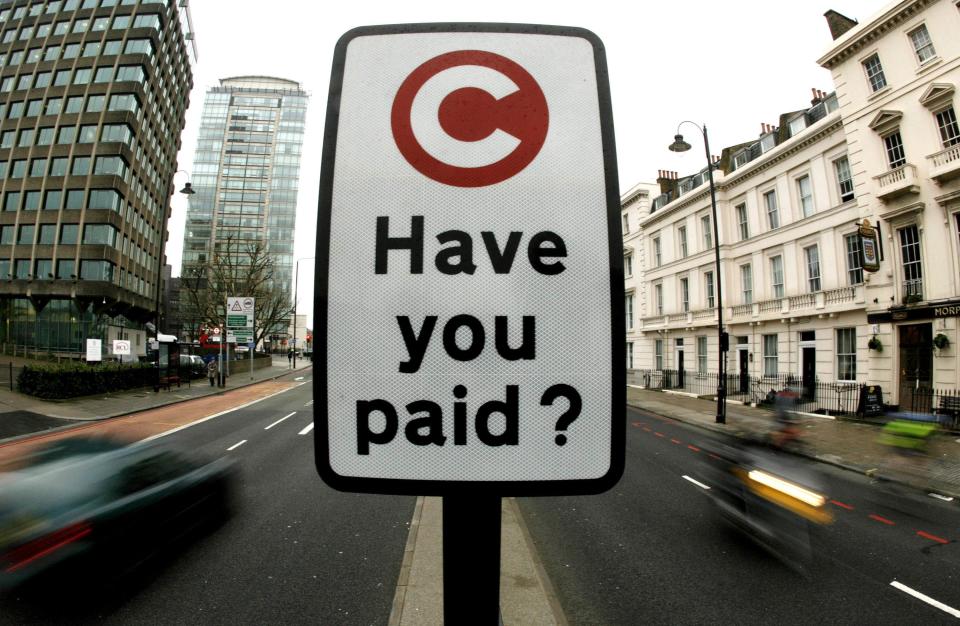Central London congestion charge: Uber and all other minicabs will be made to pay £11.50 from April
Minicabs will be forced to pay the congestion charge in a bid to ease traffic jams and improve air quality in central London, Sadiq Khan announced today.
Fares are likely to rise depending on how much of the £11.50 weekday charge drivers pass on to passengers.
The minicab industry had warned most fares would rise by 10-20 per cent, some would treble and minicabs “could become as expensive as black cabs”.
Minicabs have been exempt from the C-charge since its introduction more than 15 years ago.
Today the Mayor, who has been unable to impose a cap on the number of drivers licensed by Transport for London, decided to remove the exemption from April 8.

The changes, backed in a TfL consultation, are predicted to reduce the number of minicabs, such as Uber and Addison Lee, entering the zone from 18,000 to 10,000 a day.
The number has rocketed from 4,000 when the C-charge was launched in 2003.
However research commissioned by TfL predicted that traffic volumes may only fall by six per cent as many minicabs would make repeated journeys or “loiter” within the zone awaiting hire.
Only hybrid minicabs that can run in “zero emission mode”, or vehicles that can carry wheelchairs, will continue to be exempt.
It is thought modern versions of the Toyota Prius hybrid car, used by many Uber drivers, already meet the new standards.
Black taxis will retain their exemption because of their wheelchair accessibility but new rules will reduce their maximum age from 15 years to 12 years by 2022.
The charge is expected to raise £30 million a year for TfL. Minicabs which breach ultra low emission zone rules, being launched next April in the C-zone, face also having to pay a 24/7 fee of £12.50.
The rules will be further tightened in 2021, when only fully electric minicabs will be exempt from the C-charge.

Mr Khan blames the increased number of minicabs and rise in online deliveries for worsening road congestion.
He said: “We have to make tough decisions to protect the health and wellbeing of Londoners and tackle harmful emissions from the most polluting vehicles. We need private hire vehicles and taxis to play their part.”
Alex Williams, TfL’s director of city planning, said: “This package of measures will contribute to fewer vehicles driving where pollution is most concentrated and encourage the switch from diesel to electric.”
Professor Jonathan Grigg, an expert in paediatric respiratory and environmental medicine, Queen Mary University of London, said: “Older black cabs produce very high levels of toxic emissions. It is therefore reasonable that the [Mayor] removes this fleet from London’s roads as soon as possible.”
An Uber spokeswoman said: “The Mayor of London has set out a bold vision to tackle air pollution in the capital and we’re determined to do everything we can to back it. We want all cars on the app to be fully electric in London in 2025, with the first 20,000 drivers upgrading to electric vehicles by the end of 2021.”
Andrew Boff, Tory London Assembly member, said: “This misguided move will fail to achieve its primary objective of reducing congestion. The Mayor has blown a £1 billion black hole in the transport budget and now he is hellbent on hammering the [private hire] industry to boost the coffers.”

 Yahoo News
Yahoo News 
